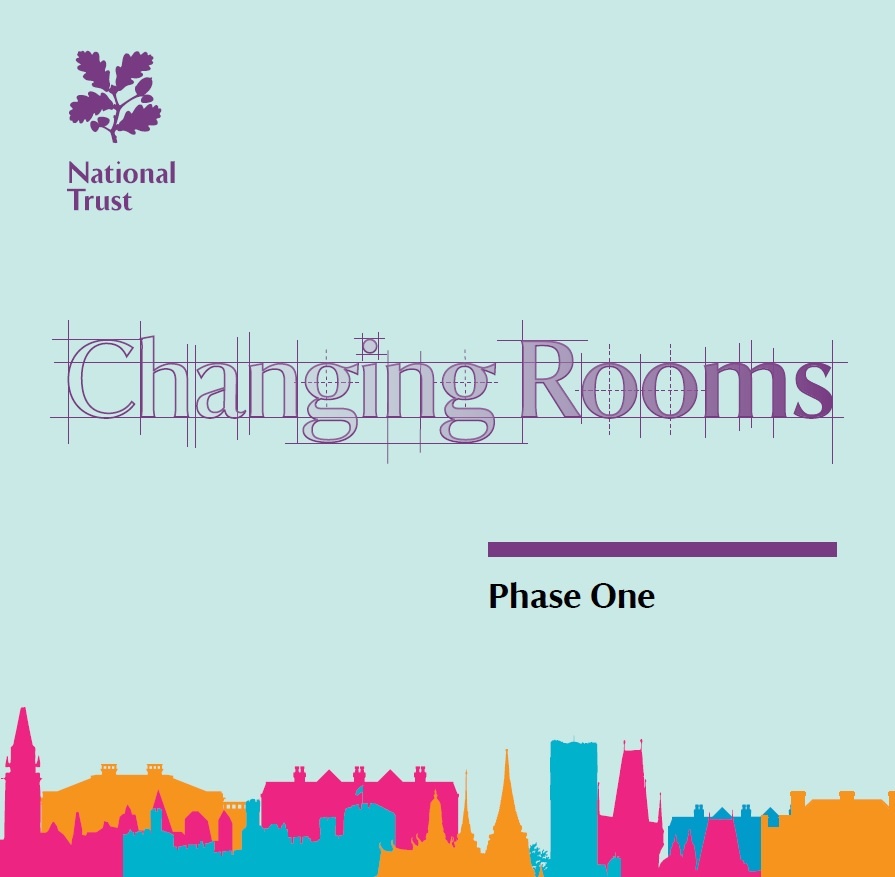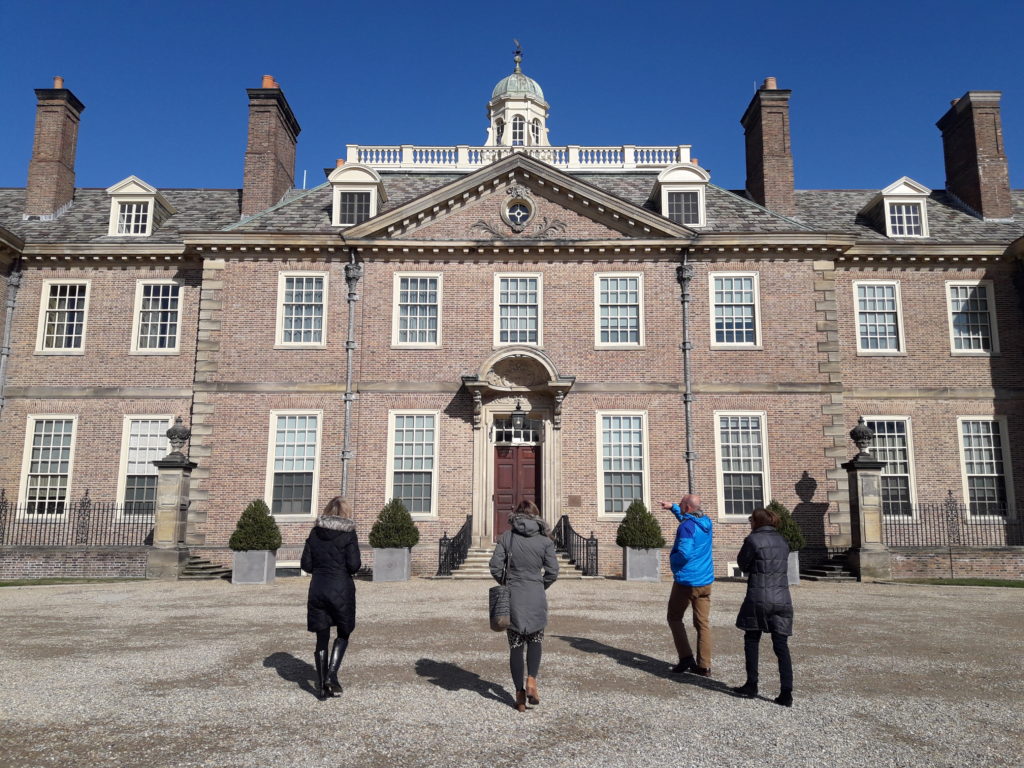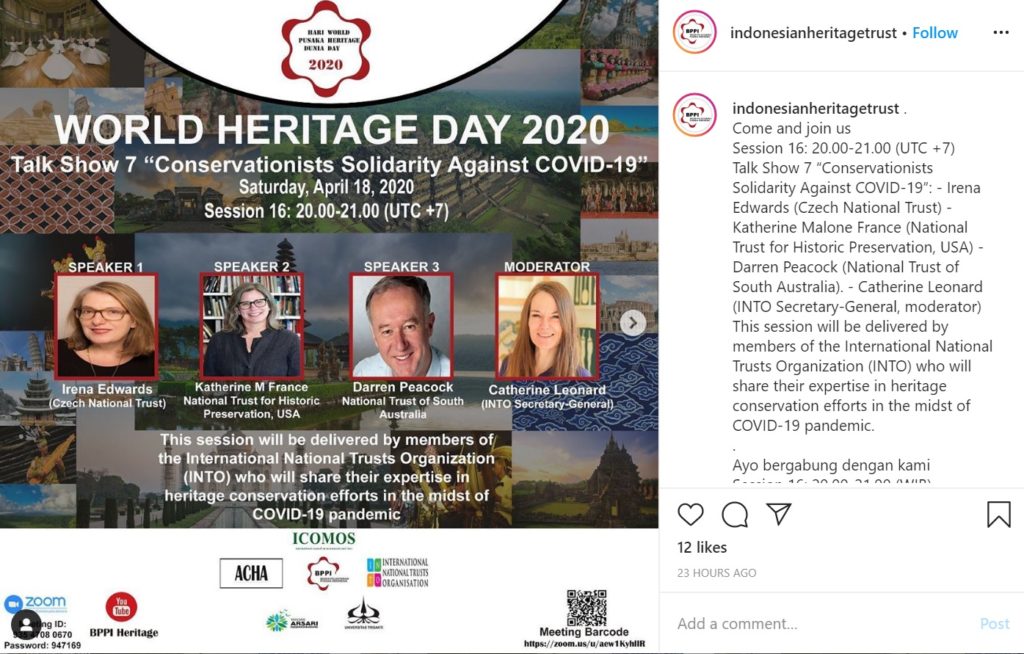-
Re-engaging Historic Sites (Covid-19 Update, 17 April 2020)
Posted on April 17, 2020
Gelderland Trust’s Biljoen Castle before restoration
Latest news from the INTO Secretariat
This week, I’m sharing details of our discussion yesterday about re-engaging historic sites. Our task force brought together fourteen representatives of INTO member organisations to pool their experiences. A number of common themes emerged: Corona hit most of us when we were just gearing up for a new season. We are all therefore anticipating a big impact on revenue this year although INTO members currently are at different stages. Some are still battling through the crisis or mitigation phases, but we all have something to learn and something to share.
As we begin to look at re-engaging (or re-opening) historic sites, here are some things INTO members are thinking about:
- Focus on local visitors/community
- Phased openings, starting with parks
- Limiting numbers perhaps members only first
- Timed tickets, bought in advance
- Developing new operational / movement plans around sites
- Rethinking the visitor centre to allow for social distancing
- Volunteers largely in the ‘at risk’ group and impact of this on sites
- Need to rethink the nature of our model based on emerging trends
We are all of course waiting to be guided by government advice. Each country will be different. But this means there is a real opportunity to learn from each other and everyone was keen to continue to share ideas and experiences. (You can access our other C-19 resources here.)
– Catherine and the Secretariat team

Heritage New Zealand are using property staff stuck at home to call ‘about to expire’ members to offer free 3-month extensions – and using the time to embed key messages about continued support

NTEWNI’s ‘Changing Rooms’ project which explored new types of visitor experience at mansion properties, but crucially reducing reliance on static, volunteer room guides

The Trustees are developing new operational plans for properties with revised movement patterns,etc

Virtual fundraising – see this virtual annual gala from the National Trust of Queensland/Currumbin Wildlife Hospital

National Trust for Canada is working with Parks Canada to virtualise their summer heritage festival
These are extraordinary times. For the people and communities we work with, the places we protect and our own organisations. From our conversations with INTO members we’ve heard concerns about financial sustainability, layoffs and wage cuts, security challenges at closed sites … but on the other hand, we’ve seen dramatic increases in online activity, creative ways of engaging the public when our places are closed and a strong willingness to work together. Here are our members’ thoughts on ‘re-engaging’ historic sites: Community impact
We heard from the Manx National Heritage, Isle of Man that many of their staff were volunteering to help with community issues. Like other INTO members, they will need to focus more on their local audience with the downturn in tourism.
The National Trust for England, Wales and Northern Ireland (NTEWNI) noted a big shift to online content, but like the Trustees below, there is still a high reliance on actual visits. They acknowledge that reopening will be complicated and are eager to learn from other country’s experiences.
We miss you!
Our colleagues at FAI – Fondo Ambiente Italiano (The National Trust for Italy) continue their ItaliaMiManchi (Italy, I miss you) campaign with a focus on local tourism. They use social media to present a different property, at the same time every night. They have recycled old footage and added new voice overs. FAI are interested in developing member-only virtual visits to help support member value.
In Canada, the National Trust for Land and Culture (B.C.) Society reported some cases of vandalism / people climbing fences to access closed down sites. They also highlighted wildlife conservation issues relating to bats. Government biologists have warned that bats might contract virus from humans now. This is impacting on site management.
Future of volunteering
Like the NTEWNI, the National Trust for Scotland (NTS) also tried to keep some sites open initially, but they are now all closed. They mentioned NTS’s dependence on volunteers to open their properties to the public. As most are in vulnerable groups, they are considering how to use staff to cover these roles. They are also lobbying government for more financial support.
Herita‘s sites are all closed and they have also increased their digital output. They are looking ahead to their heritage open days and thinking about how these could also go online. Colleagues from the National Trust for Canada reported that the summer festival they normally host with Parks Canada is going virtual. They hope to link up 500 sites across the country in an online road trip. Could be some good learning to share coming out of this experience!
In Puerto Rico, Para la Naturaleza is continuing to look after its 35,000 acres of land (tree planting and maintenance is considered essential work). They are trying to get ready for the next hurricane season. Re-engaging on a phased basis might start with conservation staff. Phase 2 could involve small groups of volunteers (they are supported by 20,000 for their citizen science activities). With phase 3 seeing the return of small numbers of people (20-25).
Re-engaging America
The Trustees of Reservations in Massachusetts said that some communities are finding it hard to access the outdoors. They therefore worked with state government to figure out how to re-open their natural sites. Out of their 118 outdoors spaces, they opened 74 last week. These are all either rural or suburban. They are rigorously monitoring and tracking experiences. They have also put their farm shops online (in 3 weeks!) and now people are able to order in advance and swing by the farms to pick up groceries.
Moving forward the Trustees are considering a timed ticketing system for their beach and high visitation properties. They are developing operational plans for particular sites (with movement patterns, etc).
Staying in the US, the National Parks Service introduced us to the idea of ‘re-engaging’ instead of ‘re-opening’. They are looking at how they can adapt experiences in a phased way.
Moreover they are doing a lot of thinking around visitor management, particularly at visitor centres. Options under consideration include phone banks so visitors can ‘dial a ranger’; home deliveries of gift shop purchases; or even on-site vending machines.
Digital pivot
The National Trust of South Australia has closed 100 buildings but their nature sites remain open. They too are pivoting to more digital content, including live streamed concerts from (closed) historic places. Also exploring how to repurpose existing apps for virtual tours. They are looking at a wholesale transformation as they come out of C-19.
Re-engaging discussion
Participants felt it was important to think about what are short-term blips and what are long-term trends:
- Will cash come back now that we’re all doing contactless payments?
- What will happen to the cruise ship industry?
- Will people continue to undertake ‘compulsory’ outdoors exercise every day? (Good for us … !)
- Will we ever get back to booking things in advance or are last-minute arrangements here to stay?
What will be the impact on our organisations, how can we prosper with these changes, how should we be rethinking our offers?
When we closed our sites, we had to work quickly and largely in isolation. With the reopening of sites, everyone agreed, there is an opportunity to pool strategies and experiences as each country emerges from the lockdown. The strength of INTO’s international network was also acknowledged so do please contact for more details.
And finally
 Earlier this week, another small group looked at approaches to managing membership during the Covid-19 pandemic. How to proactively mitigate against cancellations; strategies for handling requests for extensions or refunds of annual memberships; how to build member value when sites are closed. Again, please contact us for further information.
Earlier this week, another small group looked at approaches to managing membership during the Covid-19 pandemic. How to proactively mitigate against cancellations; strategies for handling requests for extensions or refunds of annual memberships; how to build member value when sites are closed. Again, please contact us for further information.Coming up …
Tomorrow (Saturday 18 April) is World Heritage Day! Please remember to post your virtual visits on social media and tag them @intoheritage and #virtualvist.
You can also catch a series of webinars hosted by the Indonesian Heritage Trust (BPPI) including one featuring INTO members at 1pm GMT. The full programme is downloadable here!
Then on Tuesday 21 April, we are hosting a webinar on Working Holidays at 1pm GMT. You can find out more and register here.
The International National Trusts Organisation (INTO) is a non-profit organisation registered as a charity England and Wales (No 1175994). The Secretariat is based at our registered address, 20 Grosvenor Gardens, London SW1W 0DH, UK

 44 (0)20 7824 7157
44 (0)20 7824 7157